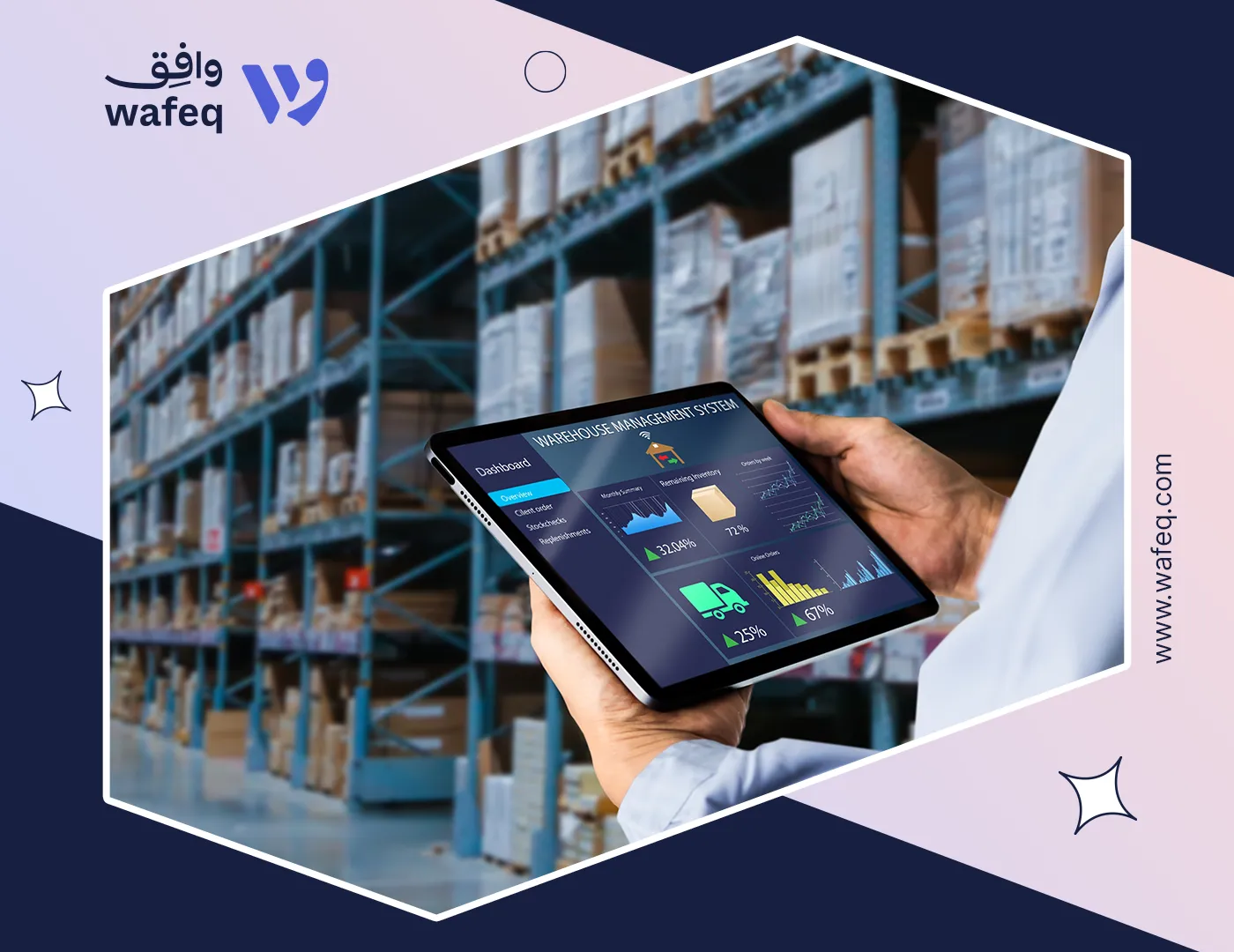How Wafeq Solves Financial Challenges in the Retail and E-Commerce Sector

The retail and e-commerce sector in Saudi Arabia has undergone a rapid transformation in recent years, driven by digitalization, evolving consumer behavior, and the accelerated growth of online platforms. While these changes have created new opportunities, they have also introduced significant financial and operational challenges for businesses.
In this article, we’ll explore the key challenges faced by retail and e-commerce businesses and how Wafeq addresses them through smart, intuitive features designed for the Saudi market.
Key Challenges in Retail and E-Commerce Finance
Retailers and e-commerce companies today operate across multiple sales channels, physical stores, online shops, and third-party marketplaces, each with its own transaction formats, inventory demands, and reconciliation complexities. Managing these activities manually often results in inefficiencies, errors, and missed financial insights. The most common financial and accounting challenges faced by this sector include the following:
- Fragmented Sales Channels Businesses often sell through multiple sales channels, like physical stores, online stores, and marketplaces like Amazon or Noon. Each platform uses different systems, payment methods, and transaction flows. Consolidating sales data manually from multiple sources is time-consuming and prone to errors.
- Inventory and COGS Tracking Inventory moves quickly in retail and e-commerce. Without proper tracking, businesses struggle to determine accurate stock levels or calculate the real cost of goods sold (COGS). This leads to poor forecasting, stockouts, or overstocking.
- VAT Compliance and E-Invoicing (ZATCA Requirements) Saudi Arabia’s e-invoicing regulations require strict compliance with ZATCA mandates, including invoice formatting, tamper-proof security, and real-time reporting. Manual invoice generation increases the risk of non-compliance and financial penalties.
- Cash Flow and Payment Reconciliation Payments may come from multiple gateways (Mada, STC Pay, credit cards) and can be delayed or partially settled. Reconciling transactions with bank statements or gateway reports can be tedious and error-prone without automation.
- Manual Data Entry and Human Error Many businesses still rely on spreadsheets or basic accounting systems. This exposes them to data entry errors, reporting delays, and gaps in financial control.
- Lack of Real-Time Financial Visibility Without timely access to financial reports, decision-makers lack insight into profit margins, top-selling items, or operational costs. This delay can affect pricing, procurement, and strategic planning.
These challenges are not just technical; they directly impact profitability, compliance, and operational efficiency. Overcoming them requires a specialized accounting system that understands the nuances of modern commerce and local regulations.
How Wafeq Addresses These Challenges: A Feature-by-Feature Analysis
Wafeq is built to solve the specific financial challenges of retail and e-commerce companies in Saudi Arabia and the GCC. Unlike generic accounting tools, Wafeq combines compliance, automation, and integration in a unified platform. Here’s how it addresses the sector’s key challenges:
1. Seamless Integration with Leading Sales Channels (Foodics and Salla) Retailers and e-commerce businesses often struggle to consolidate transactions from multiple sales platforms. Wafeq solves this by offering direct integration with Foodics and Salla, Two of the most widely used systems are in the Saudi market. These integrations reduce manual work, prevent data duplication, and provide a complete financial picture across all channels.
- Foodics Integration: Automatically syncs sales, returns, and payments from Foodics POS systems into Wafeq. This ensures that daily transactions from physical stores are captured in real time and posted to the correct accounts.
- Salla Integration: For online stores using Salla, Wafeq pulls in every invoice, payment, and customer detail automatically. Businesses no longer need to export and import reports manually. Wafeq keeps financial data accurate and current.
2. Real-Time Inventory and COGS Automation Wafeq tracks inventory movements across purchases and sales. Each transaction updates product quantities and cost of goods sold automatically. This ensures accurate stock levels and real-time COGS reporting, which is critical for margin analysis and purchasing decisions.
3. Full Compliance with ZATCA E-Invoicing Phases Wafeq is fully compliant with Phases 1 and 2 of e-invoicing in Saudi Arabia, as mandated by ZATCA:
- Issue e-invoices in the required XML format.
- Secure QR code and UUID for tamper-proof identification.
- Direct integration with ZATCA’s API for Phase 2 (integration phase)
- No need for manual invoice creation or file uploads, Wafeq automates the entire process.
4. Automated Bank and Payment Gateway Reconciliation
Wafeq enables automatic payment reconciliation with banks and other gateways. It matches deposits with invoices, flags discrepancies, and simplifies settlement.
- Helps finance teams close the books faster.
- Avoids errors in identifying partial or split payments.
- Ensures accurate cash flow tracking.
5. Smart Financial Reporting and Real-Time Dashboards Wafeq’s reports are designed for clarity and decision-making. Businesses can monitor:
- Sales by product, channel, or period.
- Profitability by SKU or category.
- Inventory valuation and stock levels.
- VAT obligations and financial statements.
6. Role-Based Access and Multi-User Collaboration
Retail and e-commerce operations involve teams across accounting, sales, fulfillment, and purchasing. Wafeq allows role-based permissions so each team sees only the data relevant to them, while ensuring the finance department maintains full control.
Case Study: How Tabby Scaled Operations with Wafeq’s Accounting System
To understand Wafeq’s impact on fast-growing businesses in the retail and digital finance sector, we can look at the success story of Tabby, One of the leading Buy Now, Pay Later (BNPL) platforms in the Middle East. As a rapidly scaling company, Tabby faced the typical challenges of high transaction volume, regulatory compliance, and the need for robust financial reporting. These pain points became more complex as the business expanded across Saudi Arabia and the UAE. Here’s how Wafeq addressed Tabby’s accounting challenges:
- Scalable Multi-Entity Accounting Tabby operates in multiple countries and needed a centralized accounting system to manage different legal entities with distinct regulatory requirements. Wafeq allowed Tabby to: - Create multiple entities under one account. - Apply localized VAT rules (ZATCA-compliant in Saudi Arabia) - Consolidate reports across entities.
- Automated Journal Entries and Invoicing With a high volume of transactions and financial flows, Tabby needed automation at the core. Wafeq streamlined: - Automated journal entries for daily transactions. - Auto-generated invoices for merchant partners and customers. - Real-time syncing between operational data and accounting records.
- Custom Integrations with Internal Systems Wafeq’s open API enabled Tabby’s tech team to integrate its internal systems directly with the accounting platform. This ensures seamless data flow between operational tools and the finance department.
- Time Savings and Audit Readiness Tabby’s accounting team reported significant time savings and improved audit readiness after implementing Wafeq. With organized documentation and automated compliance, the team reduced month-end closing time and felt confident in regulatory reviews.
Tabby scaled into new markets without scaling its accounting headaches. Wafeq provided the financial infrastructure that enabled growth while ensuring transparency, speed, and control.
Tabby scaled into new markets without scaling its accounting headaches. Wafeq provided the financial infrastructure that enabled growth while ensuring transparency, speed, and control.
Know more about: How is Wafeq's accounting software changing the game for BNPL in MENA with Tabby?
The Financial Benefits of Using Wafeq for Retail and E-Commerce Companies
Implementing Wafeq is not just about convenience or digitization. It delivers tangible financial benefits that impact the bottom line of retail and e-commerce businesses. Here are the most important value drivers:
- Time Savings = Reduced Labor Costs Manual accounting processes consume countless hours every month. By automating entries, invoicing, reconciliation, and reporting, Wafeq enables finance teams to close monthly books faster, avoid overtime or hiring more accountants, and Reallocate resources to analysis instead of data entry.
- Accurate Tax Compliance = Avoided Penalties ZATCA compliance is non-negotiable. Errors in e-invoicing, incorrect VAT filings, or missing documentation can lead to Fines from authorities, Delayed tax refunds, and Risk in audits.
- Inventory and COGS Control = Higher Margins With real-time tracking of stock and cost of goods sold (COGS), retailers can optimize inventory levels (avoid overstocking or stockouts), Set pricing with accurate margin analysis, and identify high-performing and underperforming SKUs.
- Integrated Sales Channels = Reduced Fragmentation By linking with Foodics, Salla, and other platforms, Wafeq prevents data silos. This reduces reconciliation time, prevents revenue leakage, and provides unified visibility across physical and digital stores.
- Faster Decision-Making with Real-Time Reporting Wafeq equips CFOs and business owners with up-to-date financial insights. This supports more confident cash flow forecasting, better purchasing and pricing decisions, and timely interventions to address cost overruns.
Also Read: Empowering E-Commerce with Tabby: The Pivotal Role of Wafeq in Optimizing Accounting Efficiency
Wafeq as a Strategic Partner for Retail and E-Commerce Growth
In today’s fast-paced retail and e-commerce environment, accounting is more than just record-keeping; it’s the basis of financial control, compliance, and strategic decision-making. From real-time integrations with platforms like Foodics and Salla to robust automation and ZATCA-compliant invoicing, Wafeq has proven to be a financial ally for retail and e-commerce companies in Saudi Arabia and beyond. As demonstrated in Tabby’s case, Wafeq empowers growing companies to:
- Scale with confidence.
- Maintain control over financial data.
- Improve profit margins.
- Stay compliant with local regulations.
- Simplify operations across multiple channels.
Ready to simplify your retail or e-commerce accounting?
Ready to simplify your retail or e-commerce accounting?
Start your free trial with Wafeq today and experience faster and smarter financial management.



.png?alt=media)










